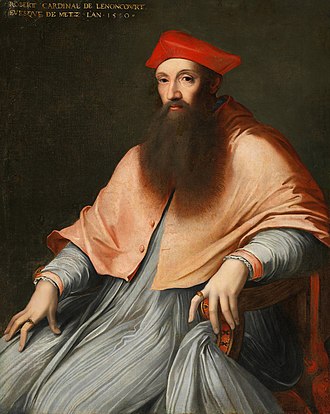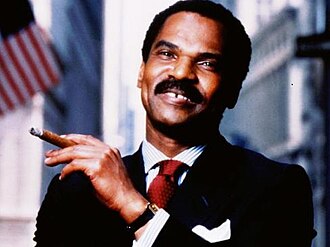Discover Your Roots
SIGN UPDiscover Your Roots
SIGN UPReginald is a male name of English origin, meaning "Advice" and "Rule". It is derived from Latin, symbolizing authority and leadership, and signifies a ruler or kingly figure. The name originated from a combination of "rex" meaning king and "nald" meaning ruler, and also has Germanic roots, with the elements "ragin" meaning "advice" and "counsel", and "wald" meaning "rule" and "ruler". Reginald is considered a very formal name, often shortened to Reg in everyday usage, with Reggie as a common pet form. Throughout history, the name has been associated with notable figures, from medieval times to the modern world, and has also been attributed to fictional characters in various works of literature and entertainment.

Colonel Reginald Edward Harry Dyer (9 October 1864 – 23 July 1927) was a British military officer known for his controversial role in the Jallianwala Bagh massacre that occurred on 13 April 1919 in Amritsar, India. Dyer, also known as "the Butcher of Amritsar," ordered the firing upon a large gathering of people, resulting in the deaths of at least 379 individuals and injuries to over a thousand more. Following this notorious event, Dyer served in the Third Anglo-Afghan war, where he achieved military success but faced widespread condemnation for his actions in Amritsar.Born in Murree, British India, Dyer pursued a military career and displayed proficiency in Indian languages and Persian. Throughout his military service, he demonstrated his skills in various campaigns and was eventually promoted to the rank of colonel. Despite his military accomplishments, Dyer's legacy is overshadowed by the devastating consequences of the Jallianwala Bagh massacre.Dyer's controversial actions in Amritsar led to both widespread criticism and praise, with some individuals connected to the British Raj celebrating him as a hero, while others, both in Britain and India, condemned his actions. His complex and controversial legacy continues to be a topic of historical debate and reflection.

Reginald VelJohnson, born Reginald Johnson on August 16, 1952, is a renowned American actor recognized for his portrayal of police officer characters. He gained widespread acclaim for his role as Carl Winslow on the beloved sitcom Family Matters, which aired from 1989 to 1998, and as LAPD Sergeant Al Powell in the iconic films Die Hard and Die Hard 2.VelJohnson's journey into acting began after obtaining a Bachelor of Fine Arts in theater from New York University. He made a significant impact in the entertainment industry by playing various law enforcement roles in both television and film. His breakthrough came with his portrayal of Sgt. Al Powell in the 1988 film Die Hard, a role he reprised in the 1990 sequel and in the GameCube video game titled Die Hard: Vendetta in 2002.Apart from his memorable performances in Family Matters and the Die Hard franchise, VelJohnson has made guest appearances in numerous TV shows, including Will & Grace, Monk, and Brooklyn Nine-Nine. He has also ventured into voice work and has appeared in several films.Outside of his successful acting career, VelJohnson has showcased his talent in other projects, such as short films and advertisements. As of 2009, he resided primarily in Oceanside, New York, and has never married nor has any children.Reginald VelJohnson's enduring impact on popular culture is further exemplified by his recent endeavors, including voicing Principal

Reginald Pole (12 March 1500 – 17 November 1558) was an English cardinal and the last Catholic Archbishop of Canterbury, known for his role during the Counter-Reformation. Born at Stourton Castle, Staffordshire, he was the third son of Sir Richard Pole and Margaret Pole, 8th Countess of Salisbury. He received his early education at various institutions and went on to study at Magdalen College, Oxford, where he was taught by prominent scholars. Pole's association with King Henry VIII led to various appointments and missions, including representing the king in Paris and studying abroad with the support of Henry VIII. His refusal to support the annulment of Henry's marriage to Catherine of Aragon led to his self-imposed exile in France and Italy. Despite offers from Henry VIII, Pole ultimately broke with the king and became a key figure in the events leading up to the English Reformation. His involvement in political and religious matters shaped his legacy as a prominent figure in English history during the 16th century.


Reginald Francis Lewis (December 7, 1942 – January 19, 1993) was a prominent American businessman, recognized as one of the wealthiest Black American men in the 1980s. He achieved a significant milestone as the first African-American to establish a billion-dollar company, TLC Beatrice International Holdings Inc. Forbes listed Lewis among the 400 richest Americans in 1993, estimating his net worth at $400 million.Born in Baltimore, Maryland, Lewis grew up in a middle-class neighborhood and pursued higher education at Virginia State University (VSU). Subsequently, he attended Harvard Law School, where he made history by being accepted before even applying, becoming the only person in the school's 148-year history to achieve this feat.Lewis embarked on a successful career, initially as a corporate lawyer before venturing into entrepreneurship. Notably, he orchestrated the acquisition of the McCall Pattern Company, turning the business around and securing substantial profits. His most notable accomplishment was the purchase of Beatrice International Foods, which he transformed into TLC Beatrice International Holdings Inc., a conglomerate that achieved unprecedented annual sales exceeding $1 billion.Beyond his business endeavors, Lewis established the Reginald F. Lewis Foundation, contributing approximately $10 million to various non-profit programs and organizations during his lifetime. His philanthropic legacy includes substantial grants to esteemed institutions such as Howard University and Harvard Law School.Reginald F. Lewis's dedication to business excellence and philanthropy continues to inspire
All images displayed on this page are sourced from Wikipedia or Wikimedia Commons.We use these images under their respective Creative Commons or public domain licenses. Wherever applicable, author attributions and license information are provided. If you believe an image is used incorrectly or outside its license terms, please contact us so that we can review and correct the issue.